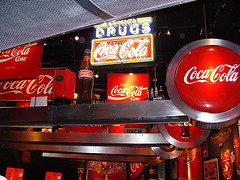

 The correlation between the need for superior customer service and stellar customer experiences with brands AND a struggling economy is not rocket science. It makes sense that people are going to be more price sensitive than ever during an economic downturn, but they are also likely to be far more affected by negative or positive customer experiences — and that includes experiences with brands.
The correlation between the need for superior customer service and stellar customer experiences with brands AND a struggling economy is not rocket science. It makes sense that people are going to be more price sensitive than ever during an economic downturn, but they are also likely to be far more affected by negative or positive customer experiences — and that includes experiences with brands.
It’s a simple concept really. When every dollar counts more than ever (like during a recession), consumers are far more aware of who they give their money to in exchange for products or services. You better believe they remember and pay more attention to people who talk about positive or negative brand experiences.
What’s the solution for brand managers and marketers who want to achieve experience-based differentiation when the economy is weak? Again, it’s simple.
- Make sure your customer service matches the messages you’re communicating to consumers. Everything and everyone has to be consistent and in synch. This should always be the case, but it never seems to work that way in real-life, does it? Perhaps during an economic downturn, executives will actually make brand consistency a priority. I can dream, can’t I?
- Make sure you deliver on the brand promise every time. Of course, companies should do this all the time, but all companies have a tendency to forget this when the money is rolling in. During a recession, when consumers are acutely aware of brand experiences, you need to make sure your brand promise is priority #1.
- Exceed customer expectations for your brand. When the economy is doing well, it’s easy to miss the mark sometimes when it comes to meeting customer expectations for your brand or to just simply meet those expectations without any extra effort to surpass them. When the economy is struggling, your brand experience needs to exceed customer expectations more than ever.
- Created brand experiences that add value. The brand experiences that brought you success when the economy was booming may not be the ones you should be focusing on during an economic downturn. Instead, think out of the box and develop brand experiences that help customers during a time in their lives that might not be a bright spot.
- Look for ways where you can deliver brand experiences that are better than or unique from what your competitors offer. This theory holds true at anytime, but it’s particularly important when the economy is weak and people are actively and aggressively looking for both value and help.
What would you add to this list?
Image: Flickr
Susan Gunelius is the author of 10 marketing, social media, branding, copywriting, and technology books, and she is President & CEO of KeySplash Creative, Inc., a marketing communications company. She also owns Women on Business, an award-wining blog for business women. She is a featured columnist for Entrepreneur.com and Forbes.com, and her marketing-related articles have appeared on websites such as MSNBC.com, BusinessWeek.com, TodayShow.com, and more.
She has over 20 years of experience in the marketing field having spent the first decade of her career directing marketing programs for some of the largest companies in the world, including divisions of AT&T and HSBC. Today, her clients include large and small companies around the world and household brands like Citigroup, Cox Communications, Intuit, and more. Susan is frequently interviewed about marketing and branding by television, radio, print, and online media organizations, and she speaks about these topics at events around the world. You can connect with her on Twitter, Facebook, LinkedIn, or Google+.



I can’t think of anything to add, but then again I’m viewing this from more a consumer standpoint, than the branding/business side. These points do seem to fall in line with that old KISS methodology that so often falls by the wayside.
Let’s see if a foundering economy and stiff competition compells businesses to get back to the basics.